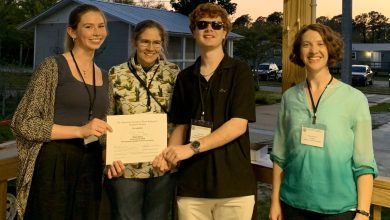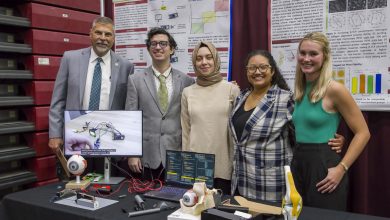Pit Viper Researcher Earns Three-Year Grant for Infrared Imaging Research
– Florida Tech doctoral student William McLamb stimulated great government interest in his research into the infrared sensor ability of pit vipers. Vying
for access to his research, two agencies offered him three-year grants to support his studies, which will lead to a doctoral degree in biological sciences.
Able to receive only one grant, McLamb accepted a National Defense Science and Engineering Graduate Fellowship, sponsored and funded by the Department of
Defense. He was selected by the Air Force Research Laboratory/Air Force Office of Scientific Research for the award, which is funded at an average of
$31,000 a year. The proposal, by McLamb and his graduate advisor, Dr. Michael Grace, was selected from 3,600 submissions.
The graduate student works in Grace’s lab to identify the molecular mechanisms of infrared imaging in pit vipers and pythons. The snakes use extremely
sensitive facial pit organs to form detailed images of the thermal environment, allowing them to locate prey and alert them to predators.
“This is the single best infrared detection system on earth. A better understanding of its operation may lead to the development of better artificial
infrared sensors for medical, industrial and military applications,” said Grace. Grace has received more than $700,000 in funding for his work on the
snakes’ infrared sensing ability.




